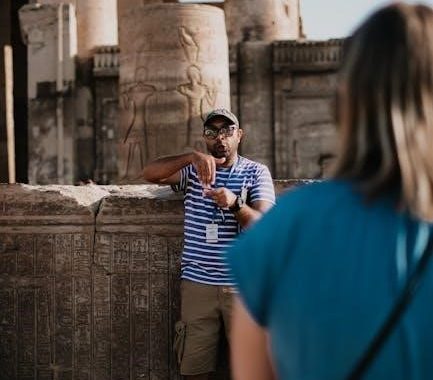A well-structured tour guide resume is essential for showcasing your qualifications, experience, and regional expertise, helping you stand out in the competitive tourism industry and land your desired role․
1․1 Importance of a Well-Structured Tour Guide Resume
A well-structured tour guide resume is crucial for standing out in the competitive tourism industry․ It effectively showcases your qualifications, experience, and regional expertise, making it easier for employers to identify your value․ A clear and visually appealing format ensures your key skills and achievements are immediately noticeable, reflecting your professionalism and attention to detail—essential traits for a tour guide․ By highlighting interpersonal skills and certifications, you demonstrate your ability to engage and inform guests, which is vital for delivering exceptional tours․ A polished resume not only enhances your credibility but also increases your chances of securing the role, as it presents you as a knowledgeable and entertaining guide․
1․2 Key Elements to Include in a Tour Guide Resume
A tour guide resume should include essential elements that highlight your qualifications and suitability for the role․ Begin with your contact information and personal details, followed by a professional summary that captures your experience and personality․ List your work experience, emphasizing roles where you engaged and informed guests, and include specific achievements or positive feedback․ Skills such as communication, problem-solving, and knowledge of local attractions are crucial to mention․ Certifications, like first aid or tourism-related courses, add credibility․ Education and any relevant training should also be included․ Finally, optional sections like languages spoken or volunteer work can further demonstrate your versatility and dedication to the field․
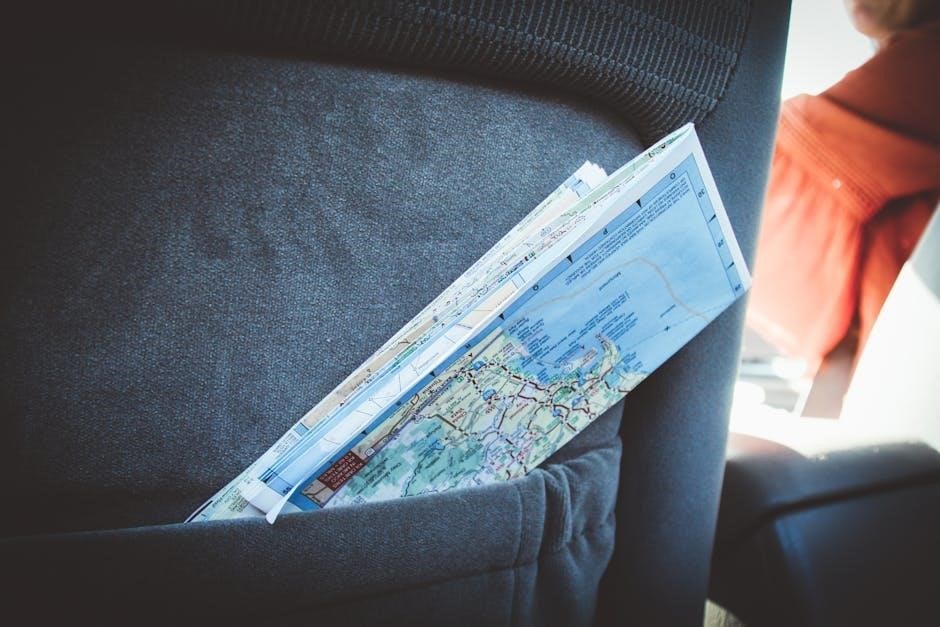
Professional Summary for Tour Guides
A professional summary for tour guides should highlight your enthusiasm, regional expertise, and interpersonal skills, showcasing your ability to engage guests and deliver memorable, informative experiences while ensuring safety and adaptability․
2․1 Crafting a Compelling Tour Guide Biography
Crafting a compelling tour guide biography involves blending your personality, experience, and skills into a concise narrative․ Highlight your passion for storytelling, regional expertise, and ability to connect with diverse groups․ Emphasize your role in creating memorable experiences, such as guiding historical tours or leading cultural excursions․ Mention any unique qualifications, like language proficiency or specialized knowledge of local attractions․ Use dynamic language to convey your enthusiasm and dedication to ensuring guests have an engaging and educational journey․ This section should paint a vivid picture of your strengths and make you stand out as an ideal candidate for the position․
2․2 Highlighting Core Competencies in the Summary
Highlighting core competencies in your tour guide resume summary is crucial for capturing the employer’s attention․ Emphasize skills like communication, leadership, and problem-solving, which are essential for managing groups and handling unexpected situations․ Mention your ability to engage diverse audiences with storytelling and historical accuracy․ Include proficiency in languages or knowledge of specific regions to showcase your versatility․ Highlight any certifications, such as first aid or cultural guiding credentials, to demonstrate professionalism․ By aligning your skills with the job requirements, you create a strong case for why you’re the ideal candidate to deliver memorable and educational tours․ This focus ensures your resume stands out and resonates with hiring managers․
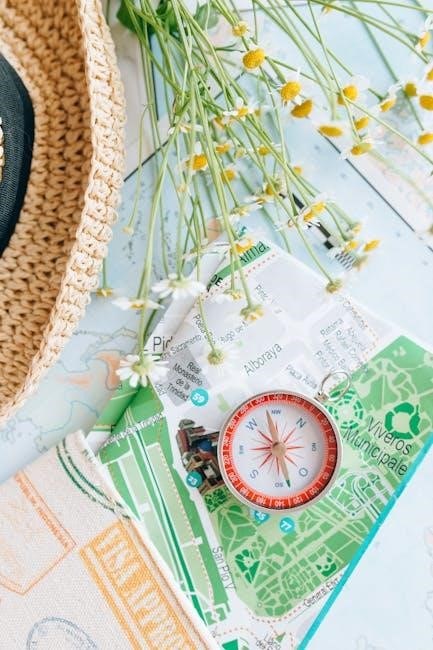
Essential Sections of a Tour Guide Resume
A professional tour guide resume should include key sections like Contact Information, Work Experience, Skills, Education, and Certifications to effectively showcase your qualifications and expertise in guiding tours․
3․1 Contact Information and Personal Details
Your tour guide resume should begin with clear and professional contact information, including your name, phone number, email address, and physical or professional address․ Adding links to your LinkedIn profile or personal website can enhance your visibility․ Ensure all details are accurate and up-to-date to make it easy for employers to reach you․ Avoid using unprofessional email addresses and opt for a simple, professional format․ Including your location can also help employers assess your regional expertise, which is crucial for tour guide roles․ This section sets the tone for the rest of your resume, so clarity and professionalism are key․ Keep it concise and free of errors to make a positive first impression․
3․2 Work Experience as a Tour Guide
Your work experience section should detail your roles as a tour guide, emphasizing responsibilities like conducting tours, managing groups, and providing educational content․ Highlight specific achievements, such as consistently positive customer feedback or successfully leading large groups․ Mention any specialized tours, like historical or adventure-focused excursions, to showcase versatility․ Include dates, locations, and employers to provide context․ Quantify accomplishments, such as “led 50+ tours annually” or “increased customer satisfaction ratings by 20%․” Tailor the description to align with the job you’re applying for, emphasizing relevant skills like communication, problem-solving, and regional knowledge․ This section demonstrates your practical expertise and reliability as a tour guide․
3․3 Skills and Certifications for Tour Guides
In the skills section, emphasize abilities like communication, problem-solving, and group management․ Highlight certifications such as CPR/First Aid, tour guide licenses, or specialized knowledge in history or culture․ Mention language proficiency if applicable․ Certifications demonstrate expertise and commitment, enhancing credibility․ Tailor your skills to match the job description, ensuring alignment with the employer’s needs․ For example, if applying for historical tours, emphasize relevant historical knowledge․ If leading adventure tours, highlight safety certifications․ This section showcases your qualifications and readiness to excel as a tour guide, making you a more attractive candidate to potential employers․
3․4 Education and Relevant Training
Highlighting your educational background and relevant training is crucial for a tour guide resume․ Include degrees in hospitality, history, or languages, as they demonstrate foundational knowledge․ Mention certifications like tour guide licenses, first aid, or cultural expertise․ If you’ve attended workshops on storytelling or customer service, note them․ Professional development courses, such as regional history or environmental studies, showcase your commitment to excellence․ List any specialized training that aligns with the job, like eco-tourism or historical interpretation․ This section proves your qualifications and readiness to provide informed, engaging tours, making you a strong candidate for the role․
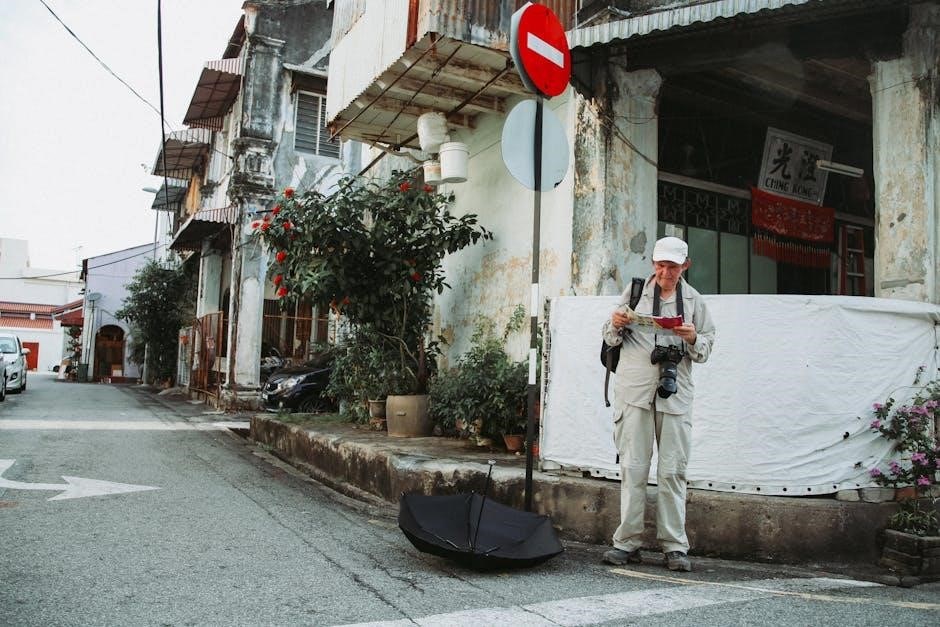
Customizable Tour Guide Resume Templates
Explore free and customizable resume templates tailored for tour guides, featuring professional formats and AI-powered tools to create standout CVs that highlight your skills and experience effectively․
4․1 Free and Printable Tour Guide Resume Samples
Utilize free and printable tour guide resume samples to craft a professional CV․ These templates offer structured formats, showcasing key sections like contact info, experience, and skills․ They are customizable to fit your specific qualifications, ensuring your resume stands out․ With options available online, you can download and edit them easily, tailoring each section to highlight your regional expertise and interpersonal abilities․ These samples provide a solid foundation, helping you present your credentials clearly and attract potential employers in the tourism industry․
4․2 AI-Powered Resume Builders for Tour Guides
AI-powered resume builders are revolutionizing how tour guides create their resumes․ These tools offer customizable templates tailored to the tourism industry, ensuring your CV stands out․ With features like keyword optimization and real-time feedback, they help highlight your regional expertise and interpersonal skills․ Many platforms provide affordable access, such as $9/month for unlimited resume building․ They also offer suggestions to enhance your professional summary and work experience sections․ These builders are user-friendly, allowing you to craft a polished resume efficiently․ By leveraging AI technology, you can ensure your resume meets modern hiring standards and captures the attention of employers in the competitive tour guiding field․

Tips for Writing a Standout Tour Guide Resume
Use action verbs and tailor your resume to the job description, emphasizing regional expertise and interpersonal skills to create a compelling, five-star tour guide resume that impresses employers;
5․1 Using Action Verbs to Describe Tour Guiding Experience
Using action verbs effectively enhances your tour guide resume by showcasing your responsibilities and achievements․ Verbs like “conducted,” “guided,” “educated,” and “engaged” highlight your role in leading tours․ For example, “Greeted visitors and maintained a positive atmosphere” or “Performed research to provide accurate information․” These verbs demonstrate your ability to manage groups, communicate effectively, and deliver memorable experiences․ Incorporate specific examples from your experience, such as “Designed and led themed tours” or “Ensured safety and satisfaction of tour participants․” Strong action verbs make your resume dynamic and engaging, helping employers visualize your skills in action and understand your value as a tour guide professional․
5․2 Tailoring Your Resume to the Job Description
Tailoring your resume to match the job description is crucial for standing out as a tour guide candidate․ Analyze the job posting to identify key terms and requirements, such as “regional expertise” or “interpersonal skills,” and incorporate them into your resume․ Highlight relevant experience, like leading tours in specific regions or handling diverse groups, to align with the employer’s needs․ Use specific examples, such as “Designed and led themed tours” or “Ensured safety and satisfaction of tour participants,” to demonstrate your qualifications․ Customize your skills section to reflect the job’s priorities, such as language proficiency or historical knowledge․ This personalized approach ensures your resume resonates with hiring managers and increases your chances of landing an interview․
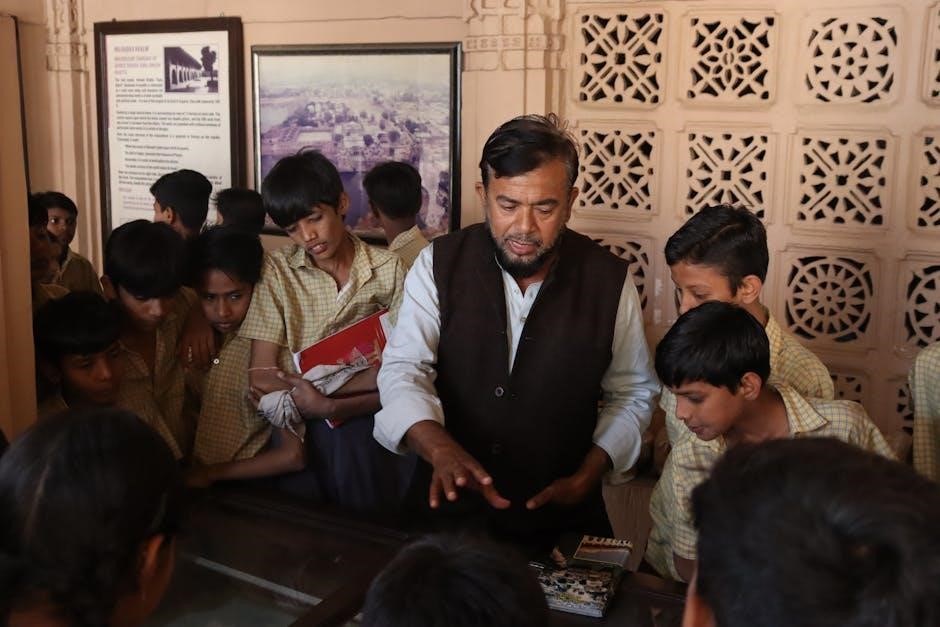
Common Mistakes to Avoid in a Tour Guide Resume
- Overlooking regional expertise, which is critical for tour guides․
- Failing to highlight interpersonal skills, essential for engaging with diverse groups․
6․1 Overlooking Regional Expertise
One common mistake in a tour guide resume is failing to emphasize regional expertise․ Employers seek guides with deep knowledge of specific areas, including historical sites, cultural nuances, and local attractions․ Neglecting to highlight this expertise can make a resume less competitive․ To avoid this, include detailed descriptions of regions you specialize in, such as historical landmarks, cultural spots, and local customs․ Mention any research or certifications related to these areas․ This demonstrates your ability to provide insightful and engaging tours, making you a more attractive candidate to hiring managers in the tourism industry․
6․2 Failing to Highlight Interpersonal Skills
Omitting interpersonal skills in a tour guide resume is a significant oversight, as they are crucial for engaging with diverse groups effectively․ Tour guides must interact with people from various cultural backgrounds, manage group dynamics, and handle unexpected situations․ Highlighting skills like communication, empathy, and conflict resolution is essential․ For example, mention experiences where you successfully managed challenging groups or tailored tours to meet diverse needs․ Failing to showcase these abilities can make your resume less appealing to employers seeking charismatic and customer-focused candidates․ Emphasizing interpersonal skills demonstrates your ability to create memorable and enjoyable experiences, making your application stand out in the competitive tourism industry․
A well-crafted tour guide resume is your gateway to showcasing qualifications, experience, and regional expertise, ensuring you stand out in the competitive tourism industry and secure your ideal role․
7․1 Final Tips for Creating a Five-Star Tour Guide Resume
To craft a standout tour guide resume, focus on clarity and relevance․ Use action verbs to describe your experience, such as “guided” or “educated,” and highlight regional expertise․ Emphasize interpersonal skills like communication and problem-solving, which are critical for engaging tourists․ Include certifications, such as first aid or language proficiency, to demonstrate professionalism․ Tailor your resume to the job description, ensuring alignment with the employer’s needs․ Finally, proofread meticulously to avoid errors and use a clean, modern format․ By combining these strategies, you’ll create a compelling resume that showcases your qualifications and helps you secure your dream role in the tourism industry․
7․2 Leveraging Online Resources for Resume Improvement
Utilizing online resources can significantly enhance your tour guide resume․ Websites offer free, customizable templates and AI-powered resume builders to streamline the creation process․ Platforms like Cake Resume and Resume Genius provide professional examples tailored for tour guides, showcasing how to highlight regional expertise and interpersonal skills․ Additionally, online guides offer tips on using action verbs and tailoring your resume to job descriptions․ These resources help ensure your resume is polished, error-free, and optimized for applicant tracking systems․ By leveraging these tools, you can create a standout resume that effectively showcases your qualifications and increases your chances of landing your desired role in the tourism industry․
